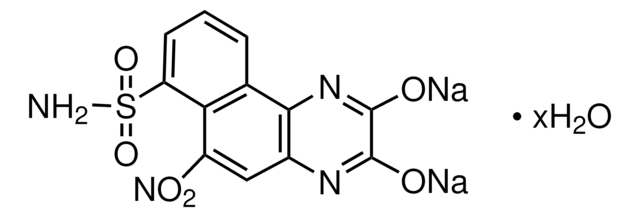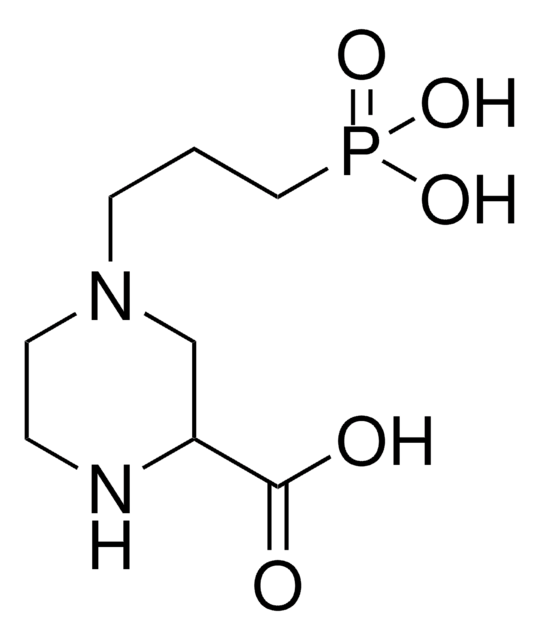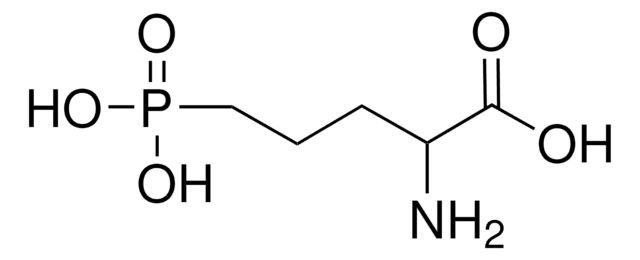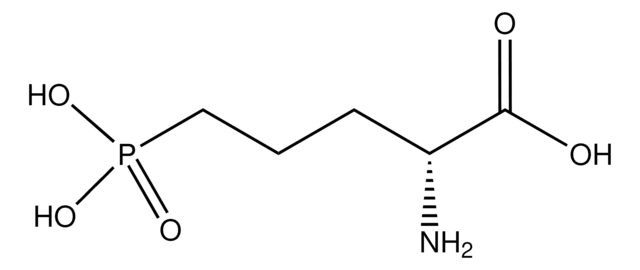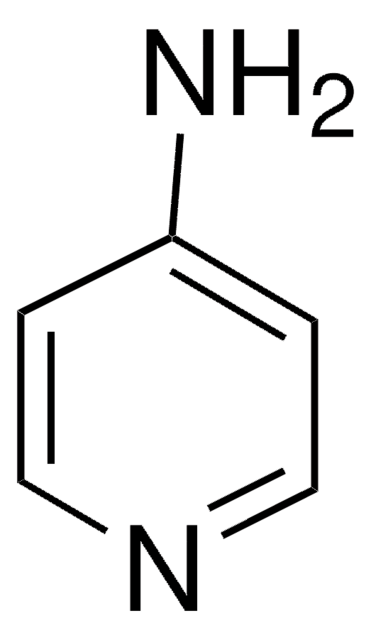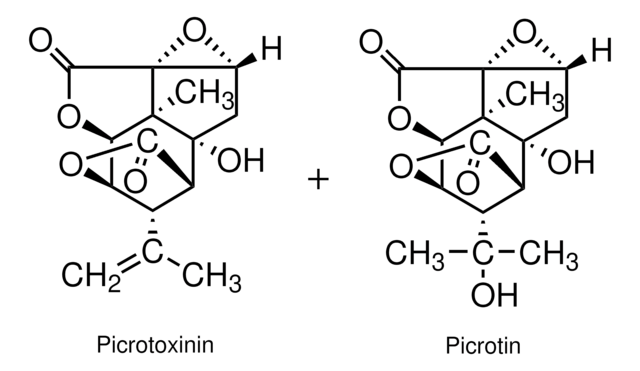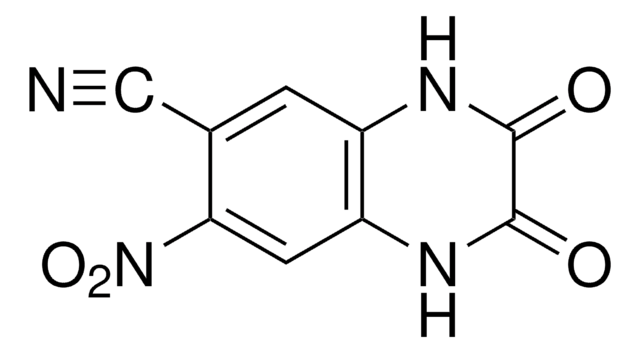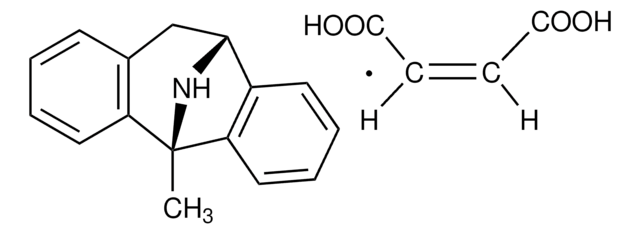N171
NBQX hydrate
powder, ≥98% (HPLC)
Synonym(s):
1,2,3,4-Tetrahydro-6-nitro-2,3-dioxo-benzo[f]quinoxaline-7-sulfonamide hydrate, FG 9202
About This Item
Recommended Products
Quality Level
Assay
≥98% (HPLC)
form
powder
color
yellow
solubility
methanol: 0.25 mg/mL
45% (w/v) aq 2-hydroxypropyl-β-cyclodextrin: 0.5 mg/mL
DMSO: 4 mg/mL
H2O: insoluble
SMILES string
O.NS(=O)(=O)c1cccc2c3NC(=O)C(=O)Nc3cc([N+]([O-])=O)c12
InChI
1S/C12H8N4O6S.H2O/c13-23(21,22)8-3-1-2-5-9(8)7(16(19)20)4-6-10(5)15-12(18)11(17)14-6;/h1-4H,(H,14,17)(H,15,18)(H2,13,21,22);1H2
InChI key
VOYWRRFTJLCIEL-UHFFFAOYSA-N
General description
Application
- as a non-N-methyl-D-aspartate receptor (NMDA) 2-amino-3-hydroxy-5-methyl-4-isoxazol propionic acid (AMPA) receptor antagonist to monitor gonadotropin responses
- α-amino-3-hydroxy-5-methyl-4-isoxazolepropionic acid receptor (AMPAR) antagonist in monocytes
- AMPA and N-methyl-D-aspartate receptor (NMDA) antagonist in migrating interneurons expressing potassium-chloride cotransporter (shKCC2)
Biochem/physiol Actions
Storage Class Code
11 - Combustible Solids
WGK
WGK 3
Flash Point(F)
Not applicable
Flash Point(C)
Not applicable
Personal Protective Equipment
Choose from one of the most recent versions:
Already Own This Product?
Find documentation for the products that you have recently purchased in the Document Library.
Customers Also Viewed
Our team of scientists has experience in all areas of research including Life Science, Material Science, Chemical Synthesis, Chromatography, Analytical and many others.
Contact Technical Service